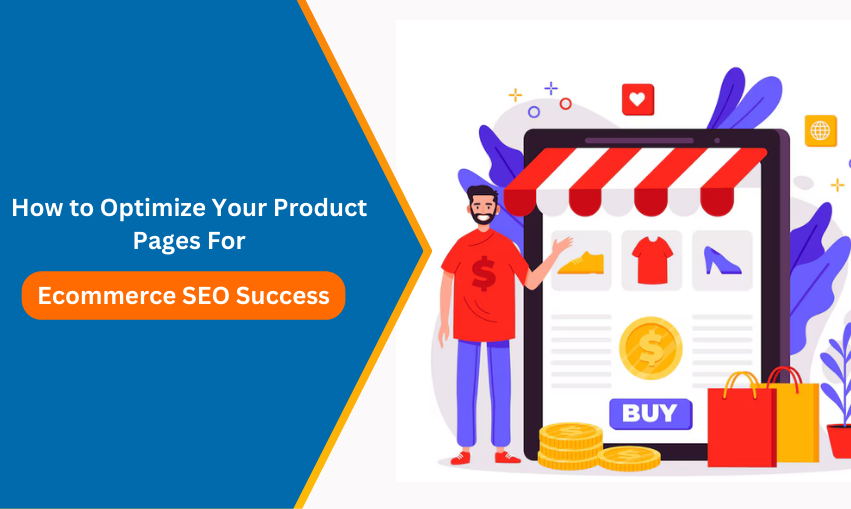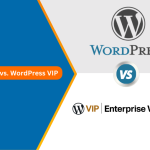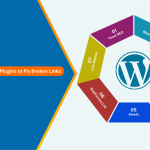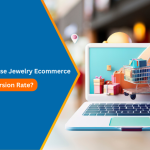In the ever-changing world of online business, where competition is rife and customers’ attention spans are short-lived, a well-executed SEO strategy is not an option but a necessity. Although the holistic SEO approach is vital, there are reasons why optimizing your product pages warrants special attention.
Why? Because product pages are the lifeblood of your e-commerce business. Studies show that 70% of online shoppers use search engines to find their desired products. In other words, many of your potential customers find their products through searches. If your product pages are optimized, you will get meaningful traffic, leads, or sales.
With all you need to know and do ready at hand, this complete guide will help transform your product pages into SEO powerhouses with increased organic visibility, enhanced relevant website traffic, and improved revenues.
What Makes E-commerce SEO Different?
Before we delve into the specifics, let’s address why e-commerce SEO requires a slightly different approach than traditional SEO.
- Product-Focused Keywords: E-commerce SEO revolves heavily around product-specific keywords—the terms shoppers use to find exactly what they want.
- Highly Competitive Landscape: The e-commerce space is incredibly competitive, with countless businesses vying for the top spots in search results.
- User Experience is Paramount: E-commerce websites live and die by their user experience. A seamless, intuitive, and informative shopping experience is crucial for conversions.

See How Our Experts Can Drive More Traffic to Your Website!
SEO: Boost your rankings and drive more organic traffic today!
Website Design/Development: Create a stunning website that converts visitors into customers.
Paid Media: Reach the right audience at the right time with expertly managed paid media.
How Do You Build a Strong E-commerce SEO Foundation?
How Do You Conduct Effective Keyword Research for E-commerce?
- Put Yourself in the Shopper’s Shoes: Think like a person interested in the same products you offer. Which terms do they enter into Google?
- Leverage Keyword Research Tools: Use tools such as Google Keyword Planner, Ahrefs, SEMrush, or Moz Keyword Explorer to find related keywords, identify their search volume, and evaluate their competitiveness.
- Target a Mix of Keywords: Incorporate a blend of:
- Head Keywords: Broad, high-volume terms (e.g., “women’s shoes”).
- Long-Tail Keywords: Longer, more specific phrases with lower competition (e.g., “comfortable women’s running shoes for wide feet”).
How Do You Optimize Product Pages for Both Search Engines and Users?
1. How Do You Write Compelling Product Titles?
- Incorporate Primary Keyword: Include your target keyword early in the title.
- Keep it Concise: Aim for 50-60 characters to avoid truncation in search results.
- Highlight Key Benefits: Convey unique selling points (e.g., “Waterproof Hiking Boots with Ankle Support”).
2. How Do You Write Engaging Product Descriptions?
- Write for Humans First: Create unique, informative, and persuasive descriptions highlighting benefits, features, and use cases.
- Use Natural Keyword Integration: Incorporate relevant keywords throughout the description, but avoid keyword stuffing.
- Structure for Readability: Use bullet points, headings, and short paragraphs to make the content scannable.
3. How Do You Optimize Product Images?
- Optimize Images for SEO: Use descriptive file names (e.g., “red-leather-tote-bag.jpg”) and alt text that includes relevant keywords (e.g., “Red Leather Tote Bag for Women”).
- Provide Multiple Angles and Views: Showcase your products from various perspectives to give shoppers a comprehensive understanding.
- Consider 360° Views and Zoom Functionality: Allowing customers to interact with product images enhances the user experience and reduces uncertainty.
4. How Do You Create User-Friendly URLs?
- Keep URLs Short and Descriptive: Use relevant keywords to indicate what the page is about (e.g., “yourwebsite.com/red-leather-tote-bag”).
- Use Hyphens to Separate Words: This improves readability for both search engines and users.
How Do You Ensure Your E-commerce Website is Technically Sound for SEO?
1. How Can You Improve Your Website’s Loading Speed?
- Choose a Reliable Hosting Provider: Choose a hosting plan to handle your website’s traffic and offer fast loading times.
- Optimize Images: Reduce file sizes by compressing images without compromising quality, increasing web page speed.
- Enable Browser Caching: To allow returning visitors to load faster by storing some information on their local machines.
2. How Do You Ensure Mobile Responsiveness for Your Ecommerce Website?
- Responsive Design is Non-Negotiable: Make it possible for the site to adjust to different screen sizes, providing the best viewing experience across all devices.
- Test Your Website’s Mobile Friendliness: Use Google’s Mobile-Friendly Test tool to spot any problems you need to fix so that your website works great on mobile.
3. What is Structured Data and How Can It Benefit My Product Pages?
- Help Search Engines Understand Your Content: Apply structured data using schema.org vocabulary to provide context about products, prices, reviews, or other important information.
- Enhance Search Results with Rich Snippets: Structured data helps create visually attractive rich snippets (e.g., star ratings, product availability, etc.) in search results, which improves the click-through rate.
4. Why Is an XML Sitemap Important for my E-commerce Site?
- Create and Submit Your Sitemap: Generate an XML sitemap listing all essential pages of your website. Then, submit it through Google Search Console and Bing Webmaster Tools so search engines can find and index all your content.
How Can Off-Page SEO Strategies Boost Your E-commerce Visibility?
1. How Do You Build High-Quality Backlinks for Your Online Store?
- Earn High-Quality Links from Reputable Websites: Focus on acquiring backlinks from authoritative websites in your industry, relevant blogs, and online publications.
- Avoid Black Hat Tactics: Avoid spammy link-building practices, as they can harm your website’s reputation and rankings.
2. How Can Social Media Marketing Drive Traffic and Engagement?
- Engage with Your Audience: Share valuable content, interact with followers, and run social media campaigns to drive traffic to your product pages.
- Run Targeted Ads: Utilize social media advertising platforms to reach a broader audience interested in your products.
3. How Can You Leverage Influencer Marketing for Ecommerce SEO?
- Partner with Relevant Influencers: Collaborate with influencers in your niche to promote your products to their engaged audience and gain valuable backlinks.
How Can You Use Content Marketing to Attract Customers and Support SEO?
1. How Do You Create High-Quality Blog Content That Ranks?
- Educate and Engage Your Audience: Publish informative blog posts, articles, and guides that address common questions, provide solutions, and showcase your expertise.
- Incorporate Relevant Keywords: Weave in target keywords to attract organic traffic and improve your website’s search visibility.
2. How Can Buyer’s Guides and Comparison Articles Benefit E-commerce SEO?
- Help Customers Make Informed Decisions: Create comprehensive guides that compare different products, highlight key features, and address customer pain points.
- Position Your Products Strategically: Subtly showcase your products as solutions within the content.
Why Is a Fast and User-Friendly E-commerce Website Crucial for SEO?
Outside the technical aspects of SEO, having a fast-loading and user-friendly e-commerce website is essential in ranking high and converting visitors into customers for sale. To make (help) websites provide positive UX, search engines such as Google have prioritized some factors such as site speed and navigation.
Consider these statistics:
- 40% of people abandon a website that takes more than 3 seconds to load. (Think with Google)
- A one-second delay in page response can result in a 7% reduction in conversions. (Kissmetrics)
Your site’s performance and success in terms of SEO can be substantially transformed if you decide to invest in professional ecommerce website development services. The following are among the many features you get from a reputable team that develops sites:
- Loads quickly: This is done through image optimization, efficient code, and solid solutions hosting.
- Is easy to navigate: There should be easy navigation due to a clear site structure, intuitive menus, and a friendly search tool.
- Is mobile-responsive: It perfectly adjusts itself on the screen depending on its size to properly cater to this growing mobile audience.
How Can Icecube Digital Help Elevate Your E-commerce SEO?
Given the evolving algorithms and increased competition, mastering e-commerce SEO is a daunting task. Partnering with an expert e-commerce SEO company such as Icecube Digital gives you a significant advantage.
Here’s how Icecube Digital, with its expertise in e-commerce website development services and ecommerce SEO services, can help you achieve sustainable growth:
- What are the Benefits of an E-Commerce SEO Audit? We’ll examine the site’s SEO prevailing state, including its strengths, weaknesses, and areas for improvement.
- How Can a Data-Driven SEO Strategy Help My Business? Our team will develop a tailored search engine optimization strategy based on your business’s specific goals, target audience, and competitive landscape.
- How Can Icecube Digital Improve My On-Page SEO? We will refine your product pages to ensure they are search engine-friendly and user-friendly.
- How Does Icecube Digital Approach Off-Page Optimization and Link Building? We will use effective methods to create authoritative solid backlinks for your site from trustworthy sources, thus boosting its domain authority
- What is Icecube Digital’s Content Marketing Approach? Our skilled writers develop informative and captivating contents that meet your audience’s needs while satisfying our aims of improving your website ranking by employing targeted keywords
- How Does Icecube Digital Track and Report SEO Results? We provide frequent performance updates, track key metrics, and offer data-driven insights to ensure that campaigns produce optimal results.
How Can You Expand Your E-commerce Business Beyond SEO?
While e-commerce SEO forms the cornerstone of your online visibility, consider these additional services to amplify your reach:
- How Can Local SEO Services Help My E-commerce Business? If you have a physical store or cater to a specific geographic region, working with a company that provides local SEO services can help you rank higher in local search results and attract nearby customers. For example, if you sell hiking gear and have a physical shop in Denver, you want to appear prominently when people search for “hiking gear Denver” or “best hiking boots in Denver.” Local SEO helps you capture that local customer base.
- Where Can I Find Valuable Tips to Grow My E-Commerce Business? Our blog is a treasure trove of actionable insights and expert advice on all aspects of growing a successful online business. Explore our Tips to Grow Your E-Commerce Business, covering topics from customer acquisition to conversion rate optimization.
Concluding Thought:
Optimizing your product pages for e-commerce SEO is a journey, not a destination. It requires ongoing effort, strategic thinking, and a willingness to adapt to the ever-evolving digital landscape.
By implementing the strategies outlined in this guide, understanding the nuances of e-commerce SEO, and considering the expertise of a specialized agency like Icecube Digital, you can transform your product pages into powerful assets, driving organic visibility, attracting qualified traffic, and ultimately, achieving sustainable growth for your e-commerce business.






